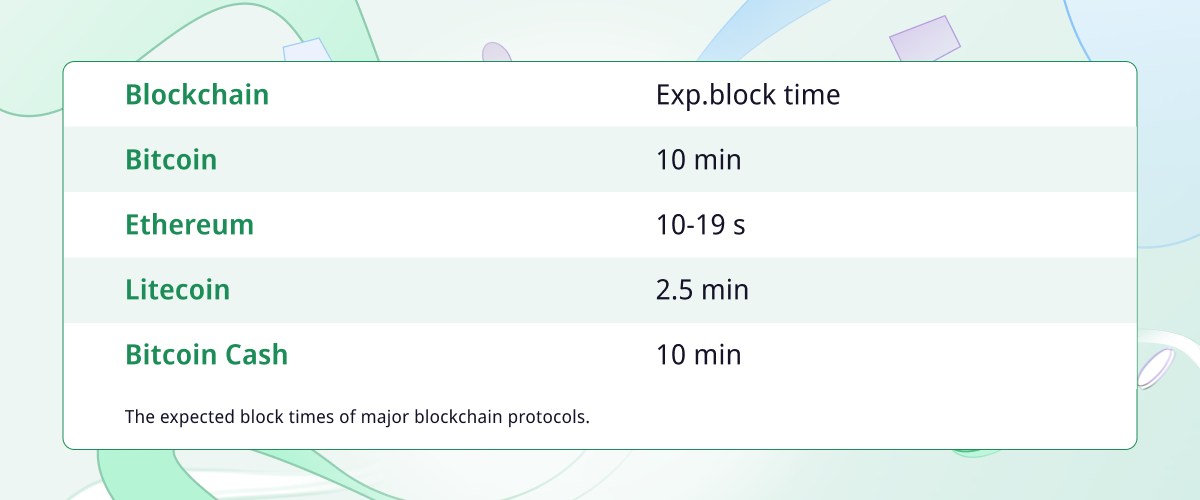Who wants to wait forever? Essentials about transaction time in blockchain

If you take advantage of a cryptocurrency exchange as a user, active trader, or just for depositing your crypto assets, you may have observed that your withdrawal request or any other operations within the exchange does not always go through right away. Sometimes you might think that it’s because of crypto exchange, but if you scratch at least the surface of the matter, you’ll find out the truth. No matter what crypto exchange you use—a delay might occur depending on the type of operation you conduct.
The thing is that you have to wait due to the transaction time on the blockchain. Not the crypto exchange that provides you access to it. Do you hear about transaction time for the first time? Read further to clarify what transaction time is, how it affects your transactions, and which blockchains have the fastest and slowest transaction times.
It’s studying time on P2B!
What is transaction time?
The time it takes for a transaction to be validated (added to the new block that will be the next in line to be executed in the blockchain) is referred to as transaction time. The validator nodes take your transaction to multiple validation stages before adding it to the new block. Only when a block is completed, it joins the blockchain, and the transaction is deemed confirmed. The more confirmations a transaction receives, the more secure it is thought to be.
Each of your operations won’t be confirmed until your transaction won’t be added to the new block and this block won’t go through the validation process. The block stacking principles are different for the different blockchains:
- All transactions are validated one by one and prioritized by the time of submission.
- The transactions are lined up based on the gas fee or fee market: miners are interested in checking more expensive transactions first and adding them to the block, so that’s why transactions with low commissions can be delayed.
- If you need to speed up things, a “fee bump” method is at your service. You can increase your fee depending on the situation on the blockchain at each moment of validation.
What does it mean for you as an exchange user? You just have to know that each time you submit your withdrawal request—this is what happens inside the blockchain.
What is a confirmation in blockchain?
Confirmation is the number of times a transaction has been added to a block and verified by the blockchain network. Each confirmation strengthens the transaction’s security, making it more difficult for someone to reverse the transaction or spend the funds twice. As you see, it’s a crucial point that influences the security of your operations directly. Typically, the exchange isn’t responsible for the blockchain confirmation protocol, but in most cases, everything goes smoothly. At least, if you conduct your digital assets’ operations with P2B.
Why does confirmation influence transaction time?
The more confirmations a transaction receives, the longer it takes to process the transaction. Bitcoin transactions, for example, normally require six confirmations before they are declared fully confirmed. Each confirmation can take up to 10 minutes, so a Bitcoin transaction can take up to an hour to be fully completed. During this time, you should be worrying, but take a deep breath and enjoy the moment. But anyway, if you have any concerns about your transaction, you can contact our customer service to clarify any doubts you may have.
Some exchanges, however, will enable you to withdraw funds after only one or two confirmations, but the risk of a double-spend attempt is higher in these circumstances. It’s definitely not a possible event for the users of our platform, but we thought that you should know that such a thing may happen.
So why do you have to wait sometimes for your transaction to complete?
Users of cryptocurrency exchanges frequently need to wait for their withdrawal requests to be processed since the exchange must guarantee that the transaction is secure before releasing the funds. To decrease the possibility of a double-spend attack, the exchange may also adopt a policy of waiting for a particular number of confirmations before releasing your funds.
The short answer is that this is for your own good. As it’s not so easy to return the funds that were missed because of confirmation failure.
Which blockchains are slow and fast in terms of transaction time?
The transaction time for various blockchains can vary greatly. In comparison to other blockchains, Bitcoin transactions are often slow, with each confirmation lasting roughly 10 minutes. Ethereum, on the other hand, has a confirmation time of approximately 15 seconds. Other blockchains, such as Ripple and Stellar, can process transactions even faster, with confirmation speeds in the hundreds of milliseconds.

Be patient. Your assets are safe and secure with P2B
That’s all there is to it. You’ve learned that in blockchain, transaction time refers to the amount of time it takes for a transaction to be confirmed and added to the blockchain. The more confirmations a transaction receives, the more secure it is deemed to be, but it also lengthens the transaction time. So you pay with your patience for the security of your operation. That’s why it’s definitely worth waiting!
Also, here at P2B, we have other measures that assure that your funds belong only to you.



